I was perusing Reddit the other day and came across a post from someone who had never been on a cruise before and admitted they were terrified of doing so.
Despite this, they were ready to try and face their cruise fears and turned to the online community for advice and reassurance.
Below are the most common cruise fears and the many ways to deal with them.

1: Fear of open water

For you, sailing on a cruise ship can be unnerving. Note, however, that you aren’t floating around aimlessly; the ship has a destination, and the officers know how to get there.
On top of that, cruise ships are specially engineered for the types of routes they sail and are put through various tests to ensure they are up to the highest safety standards. This includes safety system redundancy and procedures approved by government agencies such as the Coast Guard.
Plus, the ship constantly communicates with the cruise line’s landside operations center and other nearby vessels.
2: Feeling of getting trapped on the ship while at sea
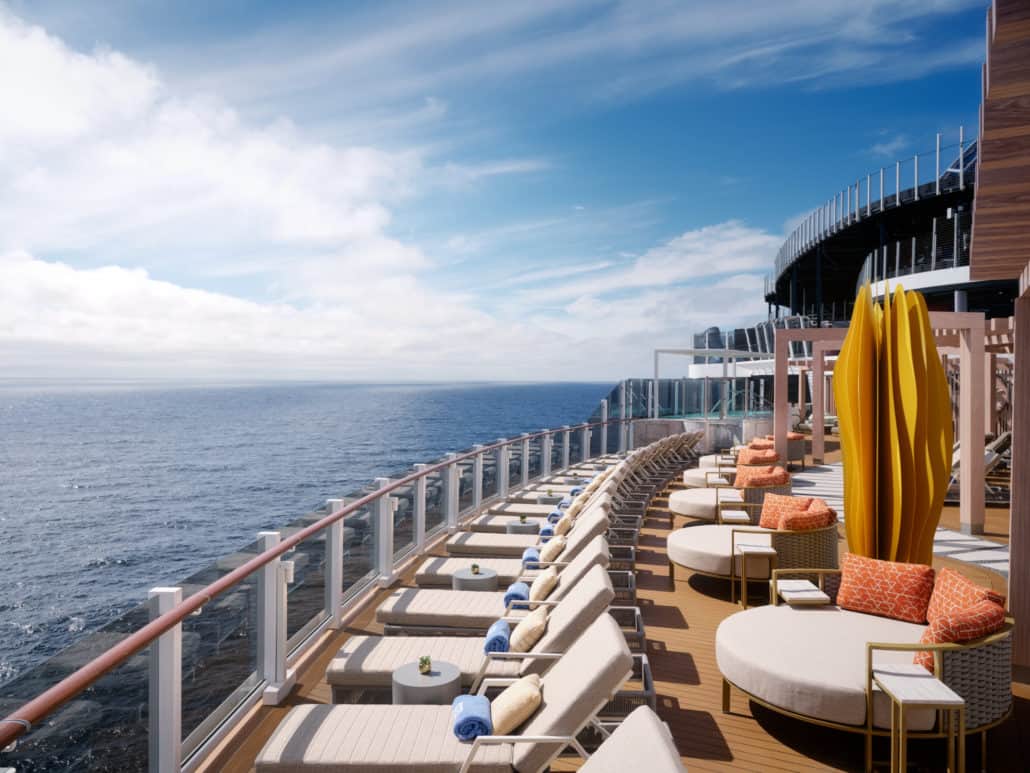
Nearly all first-time cruisers on a large mainstream ship are surprised to learn how big vessels are. Many first-time cruisers liken the size and feeling to that of a resort, shopping mall, or even a small floating city.
Now more than ever, cruise lines are designing ships with bright, wide-open indoor and outdoor spaces, and there are many activities and amenities to enjoy at all hours of the day. You’ll surely have so much fun in so many spots around the ship.
3: Fear of getting seasick
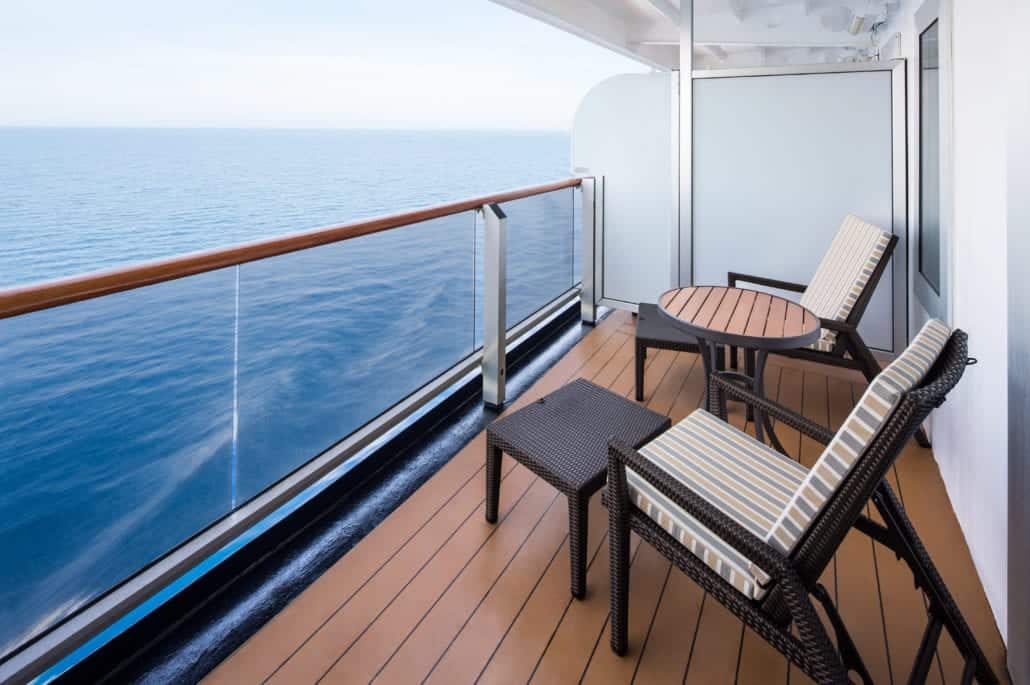
If you’re not prone to motion sickness, you won’t likely have a problem on cruises. But if you are prone to it, the waves may get to you on windier days. Thankfully, though, there are remedies you can prepare yourself with.
Dramamine is a common answer to seasickness, and you can get it for free at the ship’s medical center. However, its side effect can make you tired, which is not ideal if you want to make the most of your sea day.
Instead, find preventative solutions you can get before the voyage, such as sea bands or motion sickness patches. Ginger drops, or chews, are also an excellent natural remedy.
Additionally, if you think you might have an issue with seasickness, find a cabin that doesn’t move much—for example, one in the middle of the ship. Why? Because the front and back of the ship will experience more movement compared to the center of the ship.
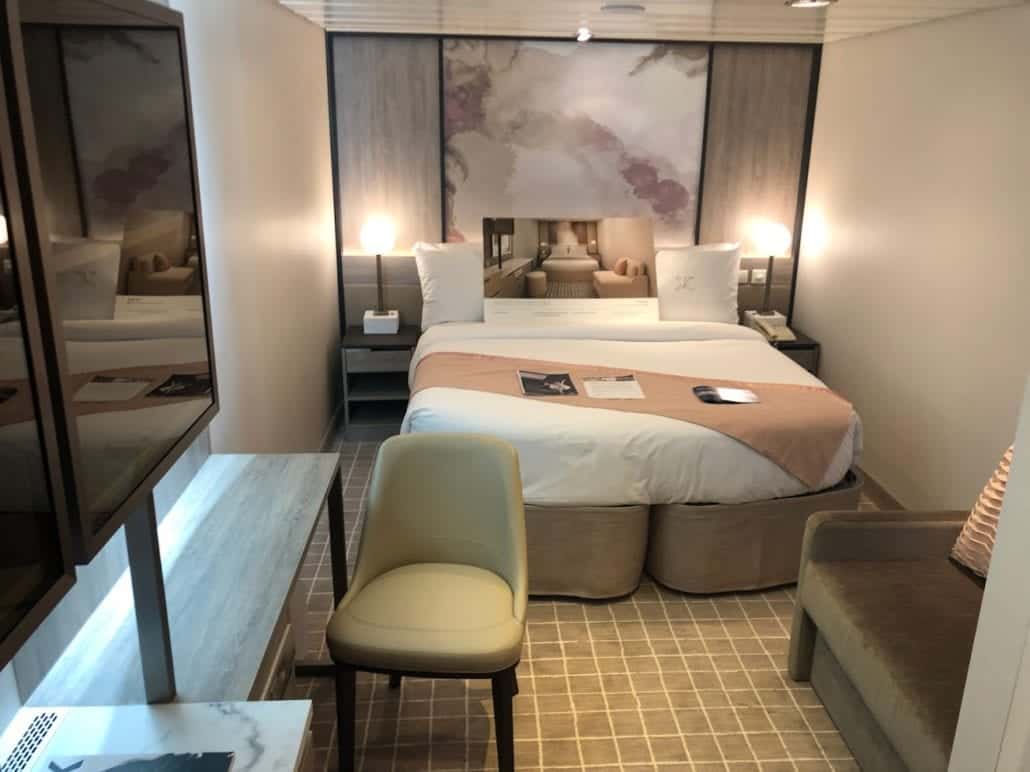
It might also be smart to ensure you have an ocean view (so you can see the horizon) or even a balcony cabin, allowing you to get fresh air.
RELATED: 5 Ways to Prevent Seasickness
4: Fear of running into a storm
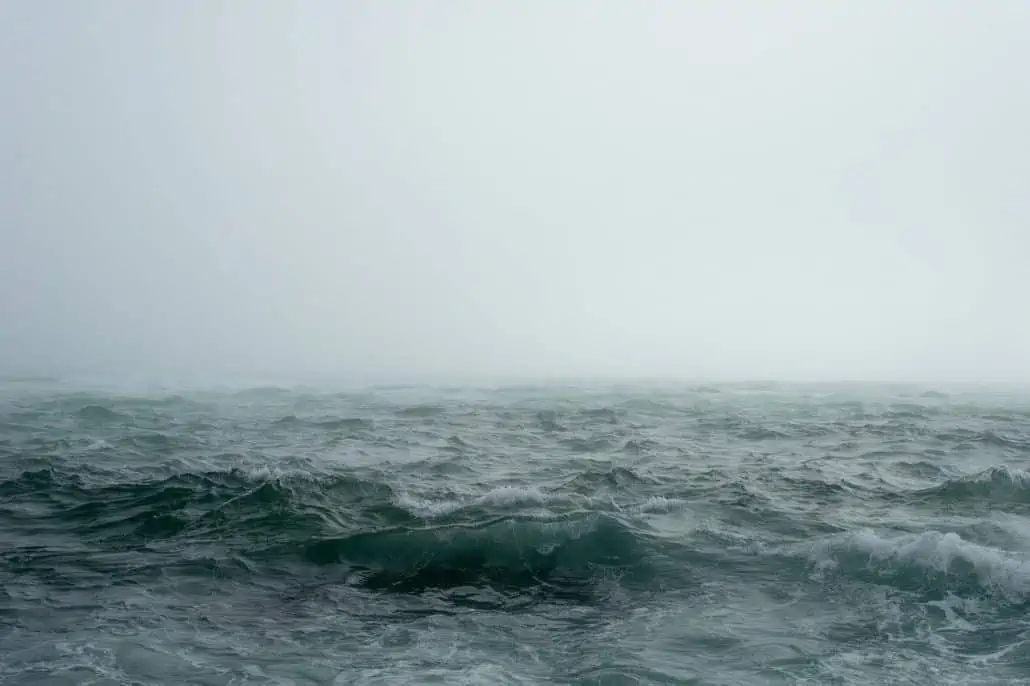
Running into a storm does happen on occasion. But there is a whole team of people, both on board and on land, who work hard to make sure that, if at all possible, the ship steers clear of bad weather.
Not that you won’t occasionally have a rain-filled sea day. But with the advanced tracking systems put in place by the cruise lines, there’s little chance of your ship running into severe weather.
Remember that the cruise line avoids bad weather for the passengers. After all, they want guests to be happy during their sail in the safest conditions possible!
5: Fear of falling overboard
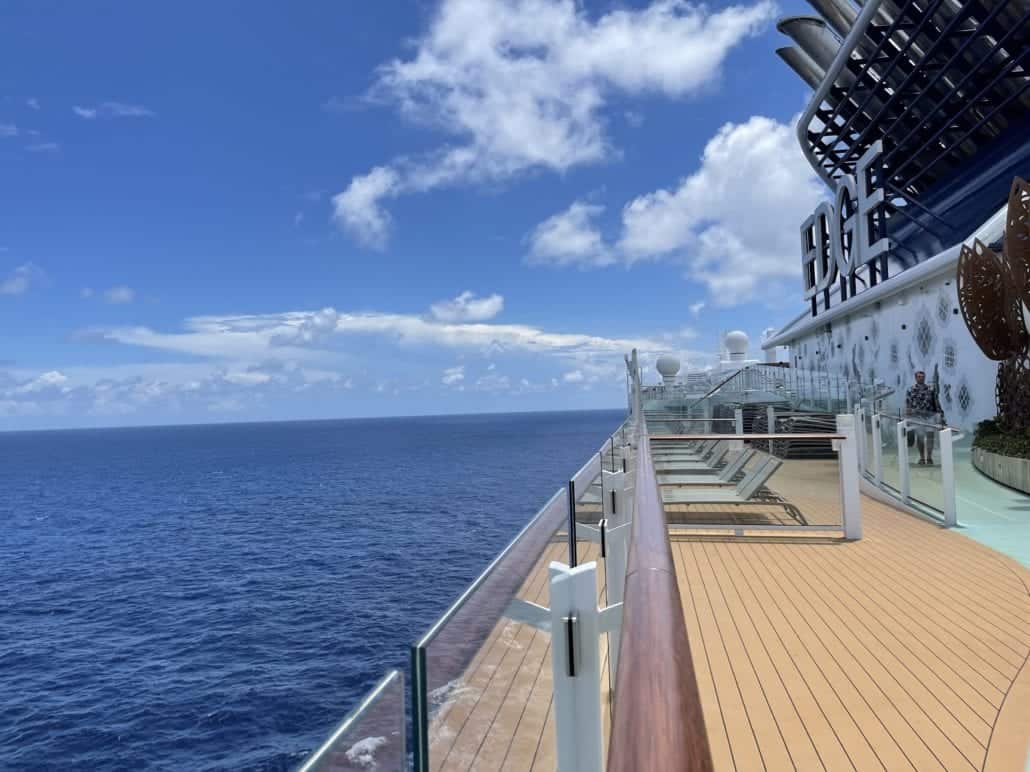
I was somewhat apprehensive before I took my first cruise. I’ve never been prone to motion sickness, but I knew enough about modern cruise ships. But I wondered about the stories of people who went overboard but were never seen again.
However, people don’t simply “fall” overboard. They don’t trip while walking on the promenade deck and — whoops! — wind up falling over the chest-high walls and railings. Every situation you hear about someone going overboard involves an act that shouldn’t have been done at all.
Maybe they decided to climb the railing to pose for a picture. Or perhaps they were intoxicated and engaging in destructive behavior. And yes, sometimes, people jump overboard intentionally.
If you keep your wits about you, follow the rules, and use common sense, you don’t need to worry about falling off the ship.
MORE: 26 Items Every Girl Should Pack For a Cruise
6: Fear of getting sick
Sicknesses are a part of life, and boarding a cruise ship won’t make people immune to them. You can still get COVID, norovirus, pinkeye, or any number of infections on a cruise ship. The good news is cruise ships are more equipped to handle health issues.
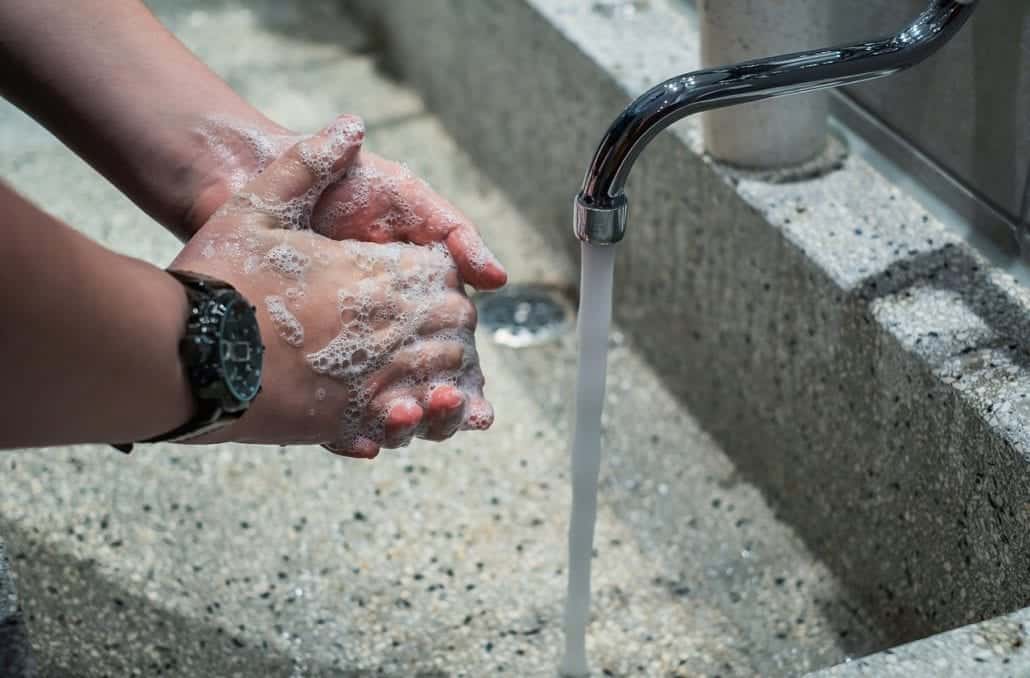
From pushing 100 percent fresh air throughout the ship and using medical-grade filtration systems to increased onboard sanitization, cruise ships are up-to-date with many technologies and procedures to keep their passengers healthy.
If you go to the infirmary, you’ll see updated medical facilities and tools to assist you with various issues.
To help you stay healthy in preparation for and during your cruise, practice simple habits in your routine to boost your immune system. This may include taking vitamins, eating veggies, meats, and fruits, and getting regular exercise.
READ NEXT: 9 Cruise Concepts That Didn’t Quite Catch On
Pin it!
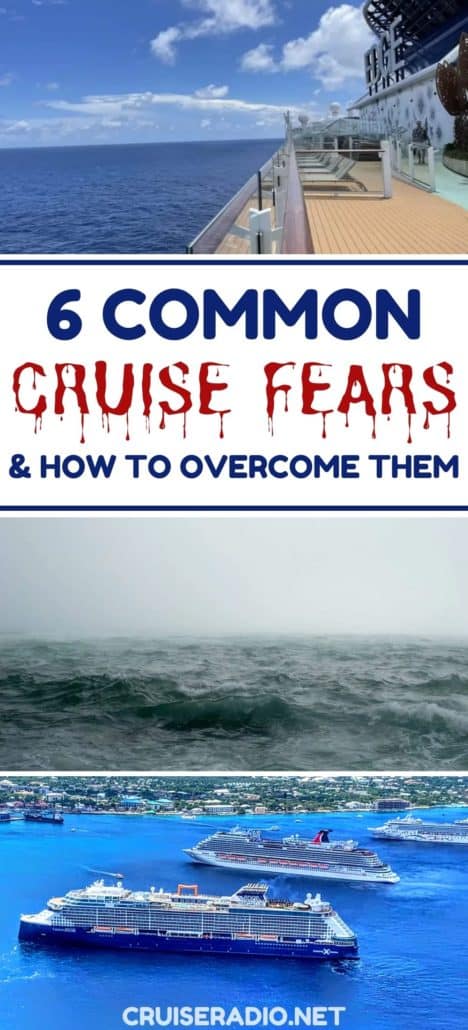


![Carnival Vista Caribbean Review 2024 + Cruise News [Podcast]](https://cruiseradio.net/wp-content/uploads/2024/04/Carnival_Vista_082-300x200.jpg)





